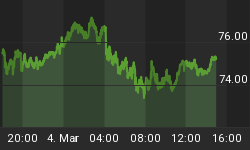For this article, I will examine what is going to happen to the deficit because of Federal tax revenues. In future articles, we will take a look at other major factors pushing up the deficit.
In America, Uncle Sam spends a lot of money! At the end of this fiscal year (in two months), it is projected that our federal government will spend about $2.8 trillion, but take in only $2.4 trillion in tax revenue. This shortfall will need to be borrowed, and by the fall of 2008 borrowing could exceed $400 billion. Borrowing and spending is a tax collected through inflation. When Congress gets around to passing another major stimulus package and more government bailouts, the US Treasury deficit will continue growing at an exceedingly rapid pace, and the American taxpayer will be forced to foot the humongous bill. Just remember this: When you're talking about governments, a dollar borrowed is a dollar taxed. When tax revenues drop, Treasury borrowing goes up.
So, what's happening to government revenues? First, millions of small businesses are either losing money and closing their doors, or making much less. Earning less means less tax, while losing money means a business is entitled to a tax refund. A source that tracks retail stores, expects 144,000 stores to close this year - there goes another 500,000 jobs, at least! Profits at financial services companies have swung to massive losses. Major industries like the airlines, automobile manufacturers and retailers, are feeling the big squeeze, too, and are closing stores left and right and cutting back. Lower corporate revenues and massive corporate refunds could dig a $100 billion hole in the tax receipts for 2009. Even the Federal Government will find it hard to get blood from a stone, especially if it's a money-losing corporate stone. Take a look at the chart below: (This Historical data is courtesy of the United States Treasury)
| Corporate Tax Receipts (in billions of dollars) Fiscal Year - October to September | |||
| 2007 | 2008 (estimated) | 2009 (estimated) | |
| Gross Receipts | $390 | $360 | $330 |
| Less Tax Refunds | (20) | (50) | (60) |
| Net Corporate Tax Receipts | 370 | 310 | 270 |
| Net Tax Receipts 2007 as Baseline | 370 | 370 | |
| Less Tax for 2008 | (310) | ||
| Less Tax for 2009 | (270) | ||
| Missing Tax Revenues Compared to 2007 | 60 | 100 | |
What about the individual taxpayer? Last year, we coughed up $1,117 billion in income tax and $838 billion in employment taxes, i.e. social security. When you throw in a few billion dollars more in estate taxes, individual taxpayers are carrying more than $2 trillion of federal taxes - or 85 percent of all taxes paid - on their backs. With Individual tax receipts running at $8 billion below last year, you may fantasize that it doesn't sound so bad. But when you consider the recent upturn in unemployment, coupled with the thousands upon thousands of layoffs on Wall Street and elsewhere, you may change your way of thinking. (The New York Times also reported recently that tips at restaurants and resorts were down by 20 percent affecting the millions of workers who rely on them so heavily.)
Taxpayers locked into making quarterly payments based on last year's income will be paying much more in tax than they need to. Because incomes are down and unemployment is up, when April 15th comes rolling around next year, many taxpayers will be entitled to a refund. This, of course, means lower tax revenues received by the government. Our estimate is that income taxes for wages and salaries could be down by $40 billion in 2009.
In addition, there's a disaster looming in capital gains receipts. In 2006 - a great year for stocks and housing - individuals recorded $675 billion in capital gains and only $18 billion in capital losses. A large portion of the capital gains were spent, boosting economic spending. The current capital gains tax rate is 15 percent, so in the fat years (2006 and 2007), the US Treasury collected about $120 billion each year. But capital gains tax receipts are highly variable. When lookingback at 2002 and 2003 - two rather lean years by comparison - the US Treasury collected much less; $49 billion and $51 billion, respectively. The current bear market in stocks, and the freefall in housing prices, will severely reverse the capital gains receipts of previous years. When you consider recent history, the capital gains tax receipts in 2009 could easily fall by more than $60 billion. For Fiscal 2008, the US deficit is on pace to be more than $400 billion.
Let's see what the baseline deficit starts to look like for 2009 (see chart below):
| Baseline Deficit (in billions of dollars) 2009 | |
| Deficit 2008 | 400 |
| Drop in Corporate Tax Receipts | 100 |
| Drop in Individual Payroll Tax | 40 |
| Drop in Individual Capital Gains Tax | 60 |
| Baseline 2009 Deficit | 600 |
Remember, this is the likely Federal deficit before costs for major new programs are added in, like the bailouts for Fannie Mae & Freddie Mac, and new government spending programs to stimulate the economy and offer all Americans health care.















